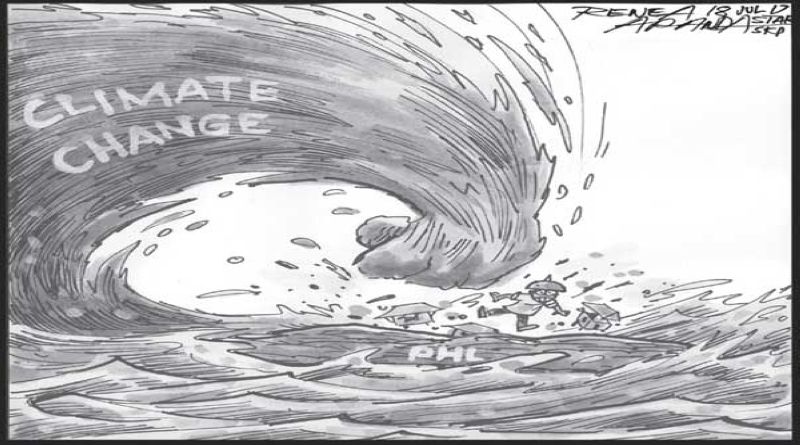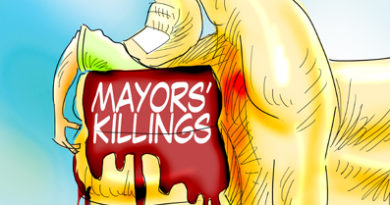Vulnerable cities
Europeans are sweltering in one of the worst heat waves ever on the continent, with temperatures in the south approaching 50 degrees Celsius. That’s hotter than what has ever been recorded in tropical Philippines, and should be a cause for concern.
The severe heat wave is seen by weather experts as yet another indication of global warming, which is causing sea levels to rise and threatening coastal areas. Of 25 cities most at risk of seeing a one-meter rise in sea levels, 19 are in the Asia-Pacific, of which seven are in the Philippines.
This is according to a study released last week by the Asian Development Bank, which co-produced the report with the Potsdam Institute for Climate Impact Research. The ADB stressed that climate change threatens to reverse development gains in the Asia-Pacific, derail economic growth and degrade the quality of life. If the region continues with business as usual, global warming could lead to a temperature rise of six degrees Celsius in Asia by the end of the century, the ADB warned.
In the Philippines, the cities most vulnerable to rising sea levels are Manila, Taguig, Caloocan, Malabon, Butuan, Iloilo, and President Duterte’s turf, Davao. Global warming, the study stressed, can adversely affect biodiversity, agriculture and fisheries, urban development and migration, public health, trade as well as domestic and regional security. Food supplies are threatened and inclusive development can become unattainable.
Global warming, the study warned, also means more intense typhoons – a serious cause for concern in the Philippines, which often serves as a welcome mat for most of the devastating weather disturbances that sweep across Asia from the Pacific. The country has yet to fully recover from several catastrophic typhoons, storm surges and freak floods in the past decade, including Yolanda, Ondoy and Milenyo.
The study gives urgency to complying with commitments to the Paris climate deal, which sets targets for reducing carbon emissions, shifting to renewable energy and investing in technology that promotes sustainable development. The risks leave nations with little choice but to do their share in confronting climate change.









